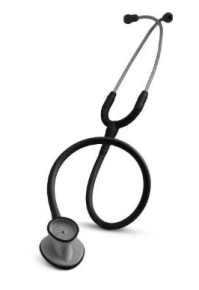An electronic medical records company recently settled with the Office of the Civil Rights (“OCR”) for violating the Health Insurance Portability and Accountability Act (“HIPAA”) following a discovery of a cyberattack on its servers which contained the protected health information (PHI) of approximately 3.5 million individuals.
|
|
||||
|
Many website design and development contracts as well as marketing and electronic medical records agreements (“technology contracts”) contain onerous terms and layers of user fees. If a physician or a dentist (“provider”) decides to part ways with the vendor under a technology contract the transition may be costly or cost prohibitive. One of the best ways providers can protect themselves against a slue of additional costs and concerns about possible loss of data is to have the contract reviewed by a healthcare attorney before signing on the dotted line. New sweeping regulations went into effect on July 1, 2017 for dental anesthesia services in New York. The regulations, among other things, would require dentists to have additional and specific continued education courses, meet specific practice requirements and maintain more exacting records than previously required. The regulations will also impose more stringent requirements on dentists providing dental sedation to patients 12 years old and younger. We provide a summary of the new requirements in the article that follows. The Bureau of Compliance (BOC) within the New York State Office of the Medicaid Inspector General (OMIG) recently performed an assessment of providers’ compliance programs. The results indicate that providers sometimes fail in relatively less complicated and readily addressable ways. The Centers for Medicare & Medicaid Services (CMS) recently launched a demonstration project that will initiate a pre-claim review for home health services. The project seeks to lower a nearly 60 percent claims error rate stemming largely from insufficient documentation. On May 16, 2016, a new rule went into effect that empowers the New Jersey Division of Taxation Director to notify a licensing State agency that a license issued by the agency to conduct a profession, trade, business, or occupation should be suspended where a license holder fails to pay a State tax indebtedness. Every year the Office of the Inspector General (OIG) issues a workplan that identifies the agency’s planned audit activities for the upcoming year. The workplan offers valuable information for healthcare entities by providing them with an opportunity to conduct appropriate risk assessments, and, where indicated, to modify the entity’s compliance program. Consistently over the years the Office of Inspector General (OIG) has targeted chiropractic services for audits. In fact, chiropractic services appear annually on the OIG’s workplan agenda. In September 2015, the OIG issued a report recommending that the Centers for Medicare & Medicaid Services’ (CMS) establish better controls and measures to prevent questionable payments, collect overpayments based on inappropriately paid claims and ensure that claims are paid only for Medicare-covered diagnoses. On July 30, 2011, the Centers for Medicare & Medicaid (CMS) implemented its new Fraud Prevention System (FPS), which uses predictive analytics technology, similar to that utilized by credit card companies, to move away from the “pay and chase” model to instead detect aberrant or fraudulent billing patterns prior to payment of claims. According to CMS, by fiscal year 2013, CMS was able to take administrative action against 938 providers and suppliers using FPS, saving or preventing $210.7 million in payments. The U.S. Department of Health and Human Services Office for Civil Rights (OCR) reached a major settlement with a non-profit covered entity (CE) resolving allegations of violation of the HIPAA Privacy Rule for allegedly failing to appropriately and reasonably safeguard protected health information. National Government Services Durable Medical Equipment Medicare Medical Review Department (NGS) has recently published the results of its third quarter prepayment medical review of high-error audit claim. In total, NGS reports, more than half of claims were denied, results in a 65 percent of claims error rate for failing to the required coverage criteria and documentation. In August, the New York State Inspector General (OMIG) denied enrollment to a pharmacy after an on-site inspection revealed several deficiencies. An apparent egregious case of non-compliance serves as a vivid reminder of why providers must comply with their professional requirements as well as why they must observe NYS Medicaid rules and regulations at all times. Providers beware – even an unintentional omission on a New Jersey Medicaid enrollment application can lead to denial of enrollment. Such was the holding of a recent New Jersey Court of Appeals decision. At a recent Health Care Fraud Prevention and Enforcement Action Team presentation given by the Office of Inspector General (OIG), the agency stressed the importance of documentation and identified the following seven common billing abuses performed by providers. |
||||

